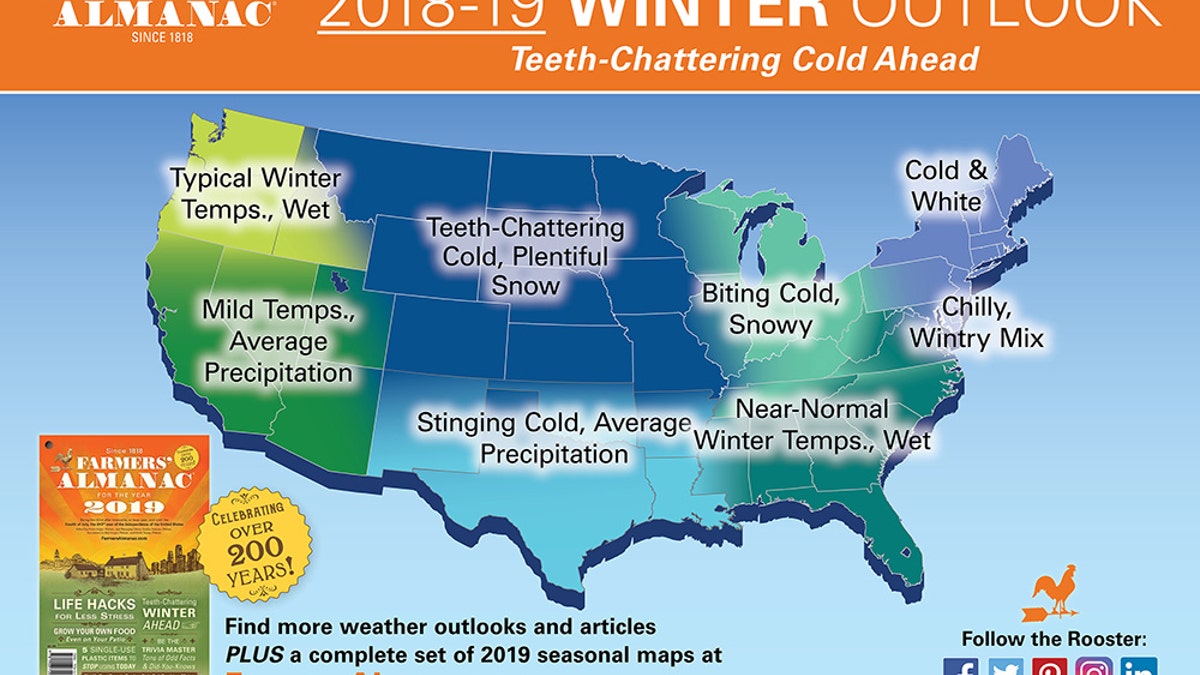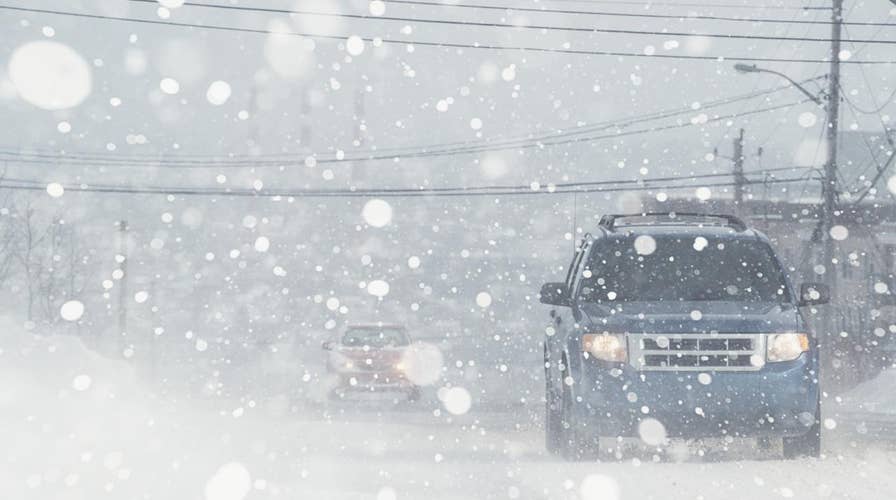Farmers' Almanac: Winter will be 'teeth-chattering' cold
Get ready for a rough winter as The Farmers' Almanac is predicting a 'colder-than-normal' season from the Continental Divide on eastward, complete with 'teeth-chattering' cold arriving in mid-February in the Northeast, Great Lakes, and even into the Southeast.
If you're over the sweltering heat and humidity that's blanketed much of the country this summer, get ready for a rough winter.
The Farmers’ Almanac is predicting a "colder-than-normal" winter from the Continental Divide on eastward, with "teeth-chattering" cold arriving in mid-February in the Northeast, Great Lakes, and even into the Southeast.
“Contrary to the stories storming the web, our time-tested, long-range formula is pointing toward a very long, cold, and snow-filled winter," editor Peter Geiger said in a statement on the company's website. "We stand by our forecast and formula, which accurately predicted the many storms last winter, as well as this summer’s steamy, hot conditions.”

The winter forecast from The Farmers' Almanac. (The Farmers' Almanac)
Included in the frigid outlook is above-average snowfall expected for the Great Lakes and New England, with some snow expected to arrive in the Mid-Atlantic and New England by December.
As to when the cold may end, the Farmers' Almanac says that a stormy March could feature a “potent East Coast storm” that could keep snow on the ground into spring.
The Farmers’ Almanac says it bases its long-range forecast "on a mathematical and astronomical formula developed in 1818."
US OPEN CONSIDERS CLOSING ROOFS AS TEMPERATURES HEAT UP
It's not to be confused with the rival Old Farmer's Almanac, billed as the oldest periodical in North America, which also issues seasonal weather forecasts.
If you're looking for a milder winter ahead, Old Farmer's Almanac is calling for "above-normal temperatures almost everywhere in the United States," in addition to more rain instead of snow.
"Our milder-than-normal forecast is due to a decrease in solar activity and the expected arrival of a weak El Niño, which will prevent cold air masses from lingering in the North," the publication notes.
But don't go heading to the store for more shovels yet, as meteorologists say it's nearly impossible to figure out the weather that far ahead.
"The ability to predict events that far in advance is zero," Penn State Meteorologist Paul Knight told the Des Moines Register. "There's no proven skill, there's no technique that's agreed upon in science to be able to do that."
Fox News Senior Meteorologist Janice Dean may have also summed up the best way to take the chilly predictions.
"Grain of salt," she tweeted Thursday.










































